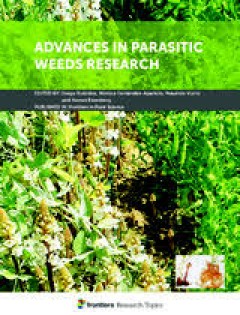Filter by

Advancements in Biomonitoring and Remediation Treatments of Pollutants in Aqu…
This book is a collection of a group of peer-reviewed scientific papers dealing with both the evaluation and the solution of the complex but pressing problem of water source pollution. In the case of both fresh and marine water, the environmental and health protection aspects are closely linked. Monitoring activities supply continuous information on the contamination levels in inland surface, g…
- Edition
- -
- ISBN/ISSN
- 9783036545066
- Collation
- 270 hlm,: ill, lamp; 21 cm
- Series Title
- -
- Call Number
- -

Advancement in Dietary Assessment and Self-Monitoring Using Technology
Although methods to assess or self-monitor intake may be considered similar, the intended function of each is quite distinct. For the assessment of dietary intake, methods aim to measure food and nutrient intake and/or to derive dietary patterns for determining diet-disease relationships, population surveillance or the effectiveness of interventions. In comparison, dietary self-monitoring prima…
- Edition
- -
- ISBN/ISSN
- 9783039280599
- Collation
- 348 hlm; ill., lamp.,
- Series Title
- -
- Call Number
- -

Advances in Parasitic Weeds Research
Over 4,000 plant species parasitize other plants to obtain water and nutrients. A few of these species have become weedy posing a tremendous threat to agriculture. The most damaging to annual crops are the root parasitic weeds, particularly broomrapes (Orobanche and Phelipanche spp.) and witchweeds (Striga spp.), which are extended over large agricultural areas in Europe, Africa and Asia.
- Edition
- -
- ISBN/ISSN
- 9782889456338
- Collation
- 334
- Series Title
- -
- Call Number
- -

Advances in Oil Crops Research – Classical and New Approaches to Achieve Su…
The world production of main oil crops is steadily increasing, mainly due to population growth and increased use of oil crops in bio-fuel production and in edible vegetable oils. From the perspective of sowing area in the world, oil crops are only preceded by cereals in importance. Edible or industrial oils are extracted from seeds, fruits or mesocarp, and nuts of both annual and perennial s…
- Edition
- -
- ISBN/ISSN
- 9782889630684
- Collation
- 306
- Series Title
- -
- Call Number
- -

Advanced Textile Based Polymer Composites: Synthesis, Characterization and Ap…
At present, the textile sector is involved in many diversified fields for the development and sustainability of novel products and polymer-based composites, with several challenges present when it comes to producing innovative, novel, and durable materials. The fabrication of textiles and polymer-based composites as advanced and multifunctional materials in applied industries is a core fundamen…
- Edition
- -
- ISBN/ISSN
- 9783036573243
- Collation
- 224 hlm; ill., lamp.,
- Series Title
- -
- Call Number
- -

Advanced Testing of Soft Polymer Materials
Manufacturers of soft polymer products, as well as suppliers and processors of polymers, raw materials, and compounds or blends are compelled to use predictive and advanced laboratory testing in their search for high-performance soft polymer materials for future applications. The collection of 12 publications contained in this edition therefore presents different methods used to solve problems …
- Edition
- -
- ISBN/ISSN
- 9783036562230
- Collation
- 212 hlm; ill., lamp.,
- Series Title
- -
- Call Number
- -

Advanced Technologies for Position and Navigation under GNSS Signal Challengi…
Currently, with the popularity of smart devices, assured Position Navigation and Time (PNT) is critical for these devices and some fundamental infrastructures, i.e., the power grid. The Global Navigation Satellite System (GNSS) is dominant in providing PNT information due to its coverage and high accuracy. However, its signals are weak, and it is vulnerable; multipath and None-Line-Of-Signals (…
- Edition
- -
- ISBN/ISSN
- 9783036576312
- Collation
- 450 hlm; ill., lamp.,
- Series Title
- -
- Call Number
- -

Advanced Technologies for Biomass
The use of biomass and organic waste material as a primary resource for the production of fuels, chemicals, and electric power is of growing significance in light of the environmental issues associated with the use of fossil fuels. For this reason, it is vital that new and more efficient technologies for the conversion of biomass are investigated and developed. Today, various advanced methods c…
- Edition
- -
- ISBN/ISSN
- 9783036561547
- Collation
- 228 hlm; ill., lamp.,
- Series Title
- -
- Call Number
- -

Advanced Technique and Future Perspective for Next Generation Optical Fiber C…
Optical fiber communication industry has gained unprecedented opportunities and achieved rapid progress in recent years. However, with the increase of data transmission volume and the enhancement of transmission demand, the optical communication field still needs to be upgraded to better meet the challenges in the future development. Artificial intelligence technology in optical communication a…
- Edition
- -
- ISBN/ISSN
- 9783036541358
- Collation
- 134 hlm; ill., lamp.,
- Series Title
- -
- Call Number
- -

Advanced Strategies to Preserve Quality and Extend Shelf Life of Foods
This book includes recent research activities in the field of food quality assurance and shelf-life extension. The goal is to broaden our current knowledge of advanced approaches to guaranteeing the maintenance of the properties of packaged products during storage. Preservation strategies based on vacuum packaging, innovative active packaging, emerging technologies, and horticultural by-product…
- Edition
- -
- ISBN/ISSN
- 9783036539140
- Collation
- 226 hlm; ill., lamp.,
- Series Title
- -
- Call Number
- -
 Computer Science, Information & General Works
Computer Science, Information & General Works  Philosophy & Psychology
Philosophy & Psychology  Religion
Religion  Social Sciences
Social Sciences  Language
Language  Pure Science
Pure Science  Applied Sciences
Applied Sciences  Art & Recreation
Art & Recreation  Literature
Literature  History & Geography
History & Geography